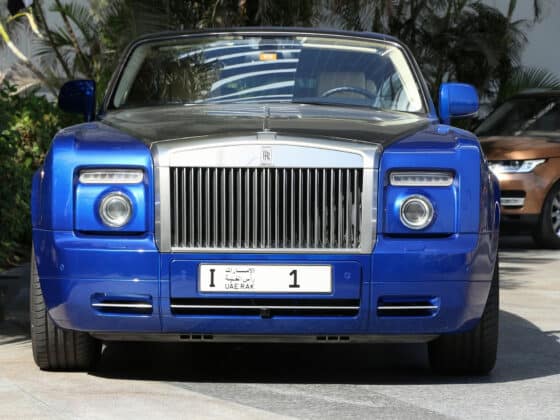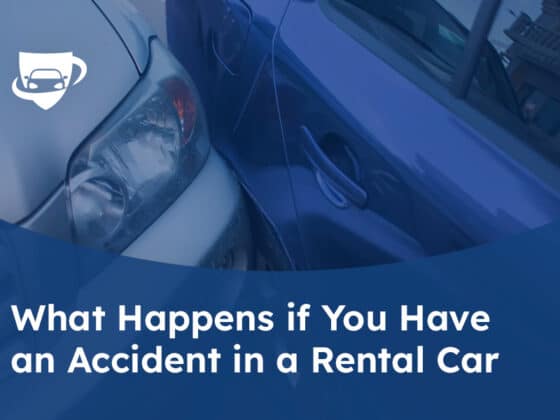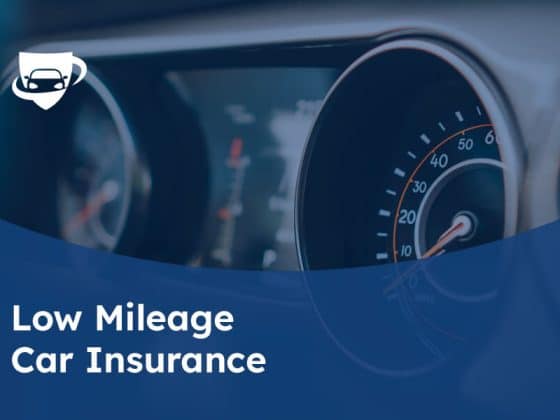If you have ever wondered, “Can I get auto insurance without a car?” then we have the answer for you — non-owner car insurance.
Also known as a non-drivers policy, it is your best option if you don’t have your own vehicle but still drive regularly. It includes situations, such as sharing a car with somebody close to you or if you borrow or rent one on occasion.
You can learn all about this kind of insurance right here. We’ll go over all the most commonly asked questions and the insurers that offer the best deals for this service. You can also find some examples to see how the service works and what it costs.
Non-Car Owner Insurance — Overview
The standard non-driver coverage is a total of $300,000 in property damage and bodily injury. That amount can vary based on the state and insurer in question. It’s also important to note that it only covers the policyholder, without their spouse and relatives.
Example of a Non-Drivers Insurance
Here’s how a non-drivers insurance policy can be beneficial in a car accident.
Imagine you crash your friend’s car, and the repairs are worth $75,000. Their property damage liability limit is $50,000, and you would own them the remainder of $25,000.
Your non-owner car insurance policy will cover that sum only if its property damage limit is higher than $50,000. Otherwise, your provider won’t pay off your claim.
Non-Owners Car Insurance Coverage
Ultimately, the insurance coverage depends on the plan, provider, and state of residence.
As a rule of thumb, having car insurance without a car features the following coverage:
- Property damage or car repair bills if you damage someone else’s property
- Medical expenses of other parties in the accident
- Legal defense if the involved party or parties sue you for causing the accident
Depending on the insurance provider, you may also enjoy:
- Renter’s insurance
- MedPay
- Uninsured motorist coverage
- Roadside assistance
The driver insurance without car ownership doesn’t include the following benefits:
- Business-related driving (unless you use your own car for business)
- Other drivers
- Damage caused to the car you’re driving
- Personal effects
- Collision coverage
- Comprehensive coverage
- Injuries you and your passengers suffer due to a car accident
Non-Drivers Insurance Suitability
Non-drivers car insurance is suitable only for people who don’t own vehicles. You won’t be eligible if you already have an insured car.
You should consider auto insurance without a car if you do the following:
- Often rent cars
- Often borrow cars (especially from people with minimum insurance coverage)
- Don’t own a car but are looking for a new one
- Use car-sharing services
- Don’t want a gap in car insurance coverage when changing cars
- Live in a state that requires you to file an SR-22 or FR-44 form
Non-Owner Auto Insurance for Business Purposes
Accidents involving your work car typically don’t fall under the protections of non-drivers insurance. However, if you’re a business owner whose employees use their own vehicles to conduct business, your insurance can protect them.
Non-Owned Insurance vs. Non-Owner Insurance
A non-owned policy sounds similar to a non-owner policy, but they’re quite distinct.
Non-owned policies feature coverage for business owners when employees use their personal cars for work-related purposes.
How to Get Car Insurance Without a Car?
If you’re interested in non-drivers insurance, there are certain things to consider, as it differs from the standard policy.
Price
The non-owner car insurance cost is between 5% and 15% cheaper than the average liability coverage plan.
That said, the average premium also depends on a few factors, such as:
- How much coverage you want
- Your driving record
- Your age
Online Quotes
Getting quotes from insurers online is standard practice. However, customers need to visit insurers in person to get their non-owner car insurance quote.
On the bright side, getting an offer is a fairly straightforward process. The insurer will inquire about some personal info, such as age, driver’s license number, and your preferred payment method.
Policy Considerations
Attention to detail is key to understanding how to get insurance without a car. That means informing your provider on what vehicle you’ll be driving (friend’s car, rental, etc.), how often you’ll use it, and for what purposes. You should also disclose whether you’ll travel out of state.
It’s recommended you inquire for details on what your plan entails, such as policy coverage and limits. Also, see if you can add additional coverage types and whether you need an SR-22 or FR-44.
Once approved, you’ll receive physical or digital proof of coverage from your insurer.
Non-Owner Car Insurance SR22
Regardless of whether you own a vehicle, you’ll still need an SR22. The non-owner SR22 policy insures you instead of the car. Generally, it isn’t expensive — a one-time fee between $20 and $30.
However, if you have an SR-22, it might result in higher limits and a requirement to maintain the coverage between two and five years. Since drivers usually need an SR-22 because of past offenses, cheap non-owner car insurance isn’t as easy for them to attain.
You cannot file an SR-22 on your own, instead, your insurer needs to take care of it. With that in mind, a non-owner policy is helpful while waiting to have your license reinstated.
Common Questions About Non-Owner Car Insurance
Can Someone Drive My Car and Be Covered on My Insurance?
Generally speaking, people driving your car are protected by your insurance plan. In case they get into an accident, your provider would be the one covering the related expenses. Your insurance follows the insured car, not the driver who purchased the insurance.
That applies to people who don’t have a vehicle and drive yours. If they have non-owner car insurance, it will cover the difference between your liability limit and the expenses caused by the accident.
However, if the driver didn’t have your permission (implicit or explicit), their insurance provider becomes responsible for any ensuing damage.
Can You Insure a Car You Don’t Own?
It’s possible to insure a car that doesn’t belong to you with the owner’s permission. You’ll also need to tell your provider that it’s someone else’s vehicle. If you’re not on the vehicle’s DVLA V5C registration certificate, some companies won’t permit you to do so. In that case, you can either find another insurer or add your name to the registration.
Is There Short-Term Non-Owner Car Insurance?
In general, short-term insurance isn’t something you’ll find easily. Most providers offer at least six months’ coverage, although you can arrange a per-month payment schedule.
Temporary non-drivers car insurance is not a feasible possibility, as well. People often want a short-term policy for a vehicle they don’t intend to purchase, but regular non-owner coverage is their best option.
The Best Non-Owner Car Insurance Options
Now that you know what non-owner policies are, let’s see what the biggest insurers offer. However, we should note that the costs might vary in every state.
Certain companies may demand prior membership or other requirements to get the policy. The best way to see whether an insurer is suitable for you is to consult an independent agent.
Non-Owner Car Insurance GEICO
GEICO is a very popular car insurance provider due to its excellent customer service and online accessibility. Most GEICO reviews praise the company for its comprehensive app.
GEICO offers an outstanding non-drivers car insurance policy. It’s among the cheapest on the market — around $621 annually, as opposed to the national average of $824.
Applying for GEICO non-owner car insurance does not require previous membership. The company is generally a solid pick and has a very high customer satisfaction score.
Non-Owner Car Insurance The General
The General’s car insurance services tend to be rather expensive. On the other hand, their rates for high-risk drivers (with record offenses, teens, etc.) are relatively low.
The General is an excellent pick if you have an SR22 form and want non-drivers car insurance. It would likely offer a lower-than-average rate to people with a DUI or similar offense on their record.
The General’s non-owner car insurance, however, has no coverage for injuries — neither for you nor your passengers. It also doesn’t include the damage to the car you’re driving.
State Farm Non-Owner Car Insurance
State Farm is among the most prominent car insurance providers in the US. It has a tremendous reputation, enticing policies, and excellent customer service.
The premiums tend to be a bit expensive, but the company balances with fantastic discounts, which almost every State Farm review praises.
State Farm offers non-drivers auto insurance, as well as rental car insurance. If you are interested in the latter, it is definitely worth your consideration.
Non-Owner Car Insurance Allstate
Another relatively pricier pick, Allstate, is a high-quality insurer that’s been around since the 1930s. Its main selling points are the robust agent workforce and discounts rewarding safe driving.
The Allstate review reveals a lacking customer service, but all the pros of this insurer tend to outweigh the occasional complaint. Its “Claim Satisfaction” guarantee ensures efficient coverage of your needs.
Unlike its high standard premium, Allstate’s non-drivers insurance is very affordable. The annual average cost of $638 is well below the national average.
Non-Owner Car Insurance AAA
Founded in 1902, AAA is one of the oldest car insurance providers in the US. It offers affordable rates and plenty of perks to its members. While AAA reviews show a mixed opinion on service quality, overall customer ratings are solid.
AAA also has non-owner policies to offer its members. AAA’s insurance policies apply to the driver rather than the vehicle, so they function the same whether you drive your or someone else’s car.
Progressive Non-Owner Car Insurance
Progressive has some of the lowest rates among US car insurance providers. Its premiums for drivers with previous accidents on record are surprisingly cheap, too. Combined with a fair deal of discounts, Progressive’s prices are challenging to match.
Progressive’s non-drivers car insurance is affordable as well. With an average rate of $576 per year, you’ll be hard-pressed to find a cheaper option.
For those seeking non-owner SR22 insurance, Progressive could be a great pick. It will send your SR22 to your chosen state electronically or via post.
Nationwide Non-Owner Car Insurance
Nine out of ten times, the people most satisfied with Nationwide are safe drivers with a family and a new vehicle. It also has plenty to offer car collectors or those who prefer to manage their policies online.
Nationwide’s non-drivers car insurance is not the most affordable on the market. Yet, the $677 annual fee is still below the national average. Coupled with “Accident Forgiveness” and “SmartRide” features lauded by many Progressive reviews, the premium becomes much cheaper.
Farmers Non-Owner Car Insurance
Farmers provides a terrific balance of great discounts and admirable customer service. Reviews of Farmers car insurance also praise its claims processing. Young drivers won’t find Farmers as appealing because the company’s premiums often prove too expensive for them.
Farmers’ car insurance plan for drivers without their own car is among the cheapest on the market, with an average annual cost of $521.
Non-Owner Car Insurance Liberty Mutual
Liberty Mutual has quite a few innovative features you won’t find elsewhere. As many Liberty Mutual reviews have noted, the company’s deftly designed website reflects its modern, outside-the-box approach.
Liberty Mutual also offers non-drivers car insurance policies, proving to be a worthwhile alternative.
Non-Owner Car Insurance USAA
USAA is the best car insurance option for active or veteran military members. Sadly, only they are eligible for the company’s services. USAA stands out with its numerous discounts and coverages and great service. You can find stellar USAA reviews everywhere.
It also offers non-drivers car insurance. Military personnel needing that or an SR22 sent out should definitely think about opting for USAA.
Wrapup
Hopefully, this rundown of non-owners car insurance has given you a clearer picture of the policy. The most important thing is determining whether it’s the best option for your situation.
It might not be as comprehensive in its coverage as standard insurance, but it’s definitely worth considering if you don’t have your own vehicle at the moment.
You should also compare what different providers offer to make the best choice for your needs.
People Also Ask
The price of your non-drivers car insurance plan depends on a few factors, such as:
– How much coverage you want
– Your driving record
– Your age
This type of auto insurance is generally 5% to 15% cheaper than standard plans.
Plenty of insurance companies have non-drivers car insurance. The biggest ones are:
– GEICO
– The General
– State Farm
– Allstate
– AAA
– Progressive
– Nationwide
– Farmers
– Liberty Mutual
– USSA
Not all of them, however, offer the policy in every state. Also, some of them only provide it if you are already a client.
Non-owner policies essentially work as secondary coverage.
For example, you crash your friend’s car, and the repairs cost $75,000. Their property damage liability limit is $50,000, so you would be responsible for the difference — $25,000.
If your policy, however, has a property damage limit under $50,000 — then you won’t be able to call on your insurer. In other words, your limit must be above the vehicle owner to be activated.
To insure someone else’s car, you should get permission from the owner. You’ll also need to inform the insurer that the vehicle you’re insuring is not yours.
Some insurers don’t allow people to insure someone else’s vehicle unless they’re on the vehicle’s DVLA V5C registration certificate. So, you either have to find an insurer with no such requirement or add your name to the registration.
Yes, you can get auto insurance even if you don’t have your own car with a non-drivers car insurance policy.
Many car insurance providers offer this policy, including big names like USAA, Progressive, and GEICO. However, they don’t necessarily have it in every state. Be sure to find out whether the company of your choosing offers non-owner car insurance.



